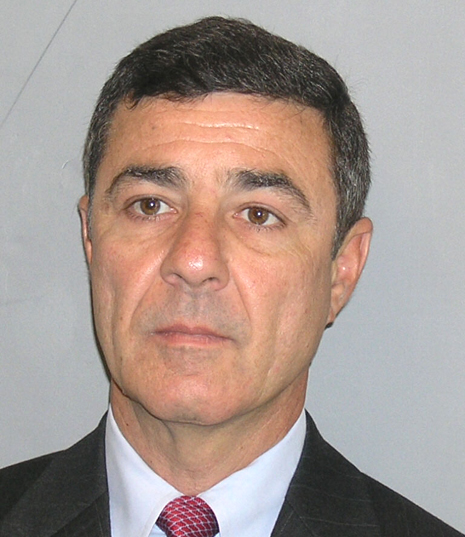- When Science Meets Crime: The Rise of BioTech Fraud in China - April 22, 2025
- How Sports Betting Is Fueling a New Era of Crime Networks - April 10, 2025
- The Dark Side of Influencer Parenting: The Case of Ruby Franke - April 8, 2025
The FBI’s Role in Combating White-Collar Crime

When it comes to tackling white-collar crimes, the FBI is at the forefront. The agency dedicates a significant portion of its resources to investigating these financial crimes. They work in tandem with other law enforcement agencies and regulatory bodies to ensure that justice is served. The FBI’s Financial Crimes Section is specifically tasked with handling these offenses, ranging from securities fraud to mortgage fraud. Their goal is not just to catch the criminals but also to deter future crimes. By maintaining a strong presence, the FBI aims to protect both the financial systems and the public’s trust.
The Most Wanted: Notorious White-Collar Criminals

The FBI’s Most Wanted list isn’t just for violent offenders; it also includes some of the most notorious white-collar criminals. These are individuals whose schemes have tricked, deceived, and financially ruined thousands. Names like Robert Allen Stanford and Bernie Madoff are infamous for their elaborate Ponzi schemes, which resulted in billions of dollars in losses. Such criminals often live in luxury, funded by their fraudulent activities, making their capture all the more urgent. By highlighting these individuals, the FBI hopes to bring attention to the severity of white-collar crimes.
The Impact of White-Collar Crime on Victims

Victims of white-collar crime often find themselves in dire straits, both financially and emotionally. Imagine losing your life savings because of someone’s deceitful actions. Many individuals face bankruptcy, while businesses may crumble under the weight of fraudulent activities. The emotional toll is significant, leading to stress, anxiety, and a profound lack of trust in financial institutions. The FBI, aware of these consequences, stresses the importance of education and awareness to help individuals safeguard themselves against such crimes. It’s a reminder that these crimes, though non-violent, can be deeply personal and destructive.
Recent Cases of White-Collar Crime

White-collar crime isn’t a relic of the past; it’s very much a present-day issue. Recent high-profile cases, like that of Elizabeth Holmes and her company Theranos, have drawn significant attention. Holmes was charged with defrauding investors by making false claims about her company’s capabilities. This case serves as a stark reminder of the potential for deception in the pursuit of success, especially within the startup culture. Such stories capture public interest and highlight the need for vigilance and skepticism, especially when dealing with investments and financial promises.
The Role of Technology in White-Collar Crime

In today’s digital age, technology plays a dual role in white-collar crime. On one hand, it offers new avenues for criminals to exploit, like cybercrime, identity theft, and online fraud. On the other hand, it provides the FBI with advanced tools to track and catch these criminals. The Internet Crime Complaint Center (IC3) reported over 300,000 cases of internet crime in 2022 alone, showcasing the scale of the problem. As technology continues to evolve, so do the strategies of both criminals and law enforcement, making it a constant game of cat and mouse.
Prevention and Awareness Initiatives

Prevention is always better than cure, and in the realm of white-collar crime, this adage holds true. The FBI, along with other organizations, has launched various initiatives aimed at educating the public. These programs focus on raising awareness about the signs of fraud and how individuals can protect themselves. Resources like the FBI’s website and community outreach events serve as valuable tools for anyone looking to stay informed. By empowering the public with knowledge, these initiatives aim to reduce the number of potential victims.
The Legal Consequences of White-Collar Crime

Those caught and convicted of white-collar crimes face serious consequences. The legal system takes these offenses seriously because they undermine the integrity of financial systems and public trust. Convictions can result in hefty fines and lengthy prison sentences. Bernie Madoff, for example, was sentenced to 150 years in prison for orchestrating one of the largest Ponzi schemes in history. Such sentences serve as a deterrent, sending a clear message that financial crimes are not taken lightly and that justice will be pursued relentlessly.
The Future of White-Collar Crime

As the world changes, so does the landscape of white-collar crime. Experts predict that the rise of digital currencies and online transactions will lead to new forms of financial fraud. The anonymity and complexity of digital currencies present new challenges for law enforcement. The FBI and other agencies must remain vigilant, constantly adapting their strategies to combat these emerging threats. It’s a reminder that while the methods may change, the core principles of deception and greed remain the same.
Conclusion: The Ongoing Battle Against White-Collar Crime

The fight against white-collar crime is an ongoing battle that requires collaboration between law enforcement, regulatory agencies, and the public. By staying informed and vigilant, individuals can help protect themselves and contribute to the efforts to bring white-collar criminals to justice. The FBI’s Most Wanted: White-Collar Edition serves as a reminder of the serious nature of these crimes and the importance of accountability.




